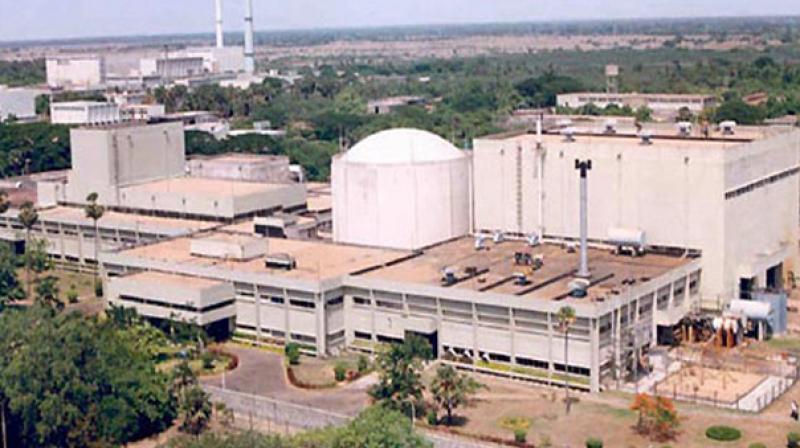Fast Breeder Reactor to go critical in two months
Bhaduri further explained that from Tamil Nadu, around 8000 to 9000 MW could be generated through nuclear power stations.

Chennai: After missing several deadlines and delayed by six years, the fully indigenous 500 MW Prototype Fast Breeder Reactor (PFBR) at Kalpakkam to be commissioned in two months.
“This event will mark the beginning of the second phase of Indian Nuclear Power Programme,” said AK Bhaduri, director, Indira Gandhi Centre for Atomic Research, Kalpakkam.
“IGCAR has been pursuing the indigenous technology for sodium-cooled Fast Breed Reactors and its associated fuel reprocessing fuels since its inception in 1971. The efforts are about to culminate within two months with the commissioning of PFBR,” he said while speaking at the 161st convocation of the University of Madras on Wednesday here.
While praising Homi Bhaba for envisioning nuclear power programme, he said, “The three-stage Indian Nuclear Power Programme is still relevant. It was conceptualized keeping in view how to utilise moderate Uranium reserves and vast Thorium reserves in our country.”
Fast Breeder Reactors are special kind of nuclear reactors that generate more atomic fuel than they consume as they work.
Due to their physical state, Thorium cannot directly be used as atomic fuel. So, the FBR deploys special rods of thorium which when they get exposed to or irradiated by fast neutrons they generate U-233. The benign thorium turns into a valuable atomic material.
Bhaduri further explained that from Tamil Nadu, around 8000 to 9000 MW could be generated through nuclear power stations.
“At Kudankulam, presently, 2000 MW power is being generated through light water reactors. Now, additional units are being built to produce 2000 MW. Recently, the government of India signed MoU with Russia for additional 2,000 MW,” he explained.
“And, 500 MW will be generated by PFBR in Kalpakkam and two more FBRs with 600 MW capacity also are being planned. Totally, 8,000 to 9000 MW of stable power will go into the Tamil Nadu or Southern grid in near future,” he added.
The Madras Atomic Power Station is already producing 440 MW. Allaying the safety fears about nuclear power plants he said, “Safety is the primary cause of all our researches. We will make sure no incident will affect the neighbourhood.”
He further listed the spin-off technologies came out of nuclear labs including cancer research and radiation treatment.
He informed the students that IGCAR is likely to set up a 1.5 MLD treatment plant to recycle the waste water from the plant.
Madras University vice-chancellor P.Duraisamy said the student enrollment in both regular and distance mode programmes have witnessed an increase compared to the previous year.
Governor Banwarilal Purohit presided over the convocation.Totally 434 candidates received medals and prizes in person and 70,430 students got their degrees in absentia.
Higher education minister K.P.Anbalagan, Governor secretary R.Rajagopal, higher education secretary Mangat Ram Sharma and others participated in the event.

